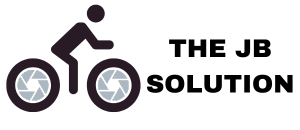Introduction to Kredit ohne Schufa
In Germany, the Schufa (Schutzgemeinschaft für allgemeine Kreditsicherung) plays a crucial role in determining an individual’s creditworthiness. Most traditional lenders rely heavily on Schufa reports when approving loans, making it difficult for individuals with poor or no credit history to secure financing. However, Kredit ohne Schufa (credit without Schufa) offers an alternative solution for those who need financial assistance but face challenges due to their credit score.
This guide explores everything you need to know about Kredit ohne Schufa, including how it works, the types available, eligibility criteria, and the pros and cons. Whether you’re self-employed, a freelancer, or someone with a negative Schufa entry, understanding this financing option can help you make informed decisions.
What Is Kredit ohne Schufa?
Kredit ohne Schufa refers to loans granted without a traditional Schufa check. Instead of relying solely on credit history, lenders assess other factors such as income stability, employment status, and bank statements. These loans are particularly useful for:
- Individuals with a negative Schufa entry
- Expats or newcomers without an established credit history
- Self-employed professionals or freelancers with irregular income
- Those who need quick access to funds without lengthy approval processes
While Kredit ohne Schufa provides flexibility, it often comes with higher interest rates and stricter repayment terms compared to conventional loans.
Types of Kredit ohne Schufa Available
1. Personal Loans Without Schufa Check
Some specialized lenders and online financial institutions offer personal loans without requiring a Schufa report. These loans are typically unsecured, meaning no collateral is needed. However, borrowers may need to provide proof of income or a guarantor to secure approval.
2. Microloans and Short-Term Financing
Microloans are small, short-term loans designed for urgent financial needs. Since they involve smaller amounts, some lenders may skip the Schufa check. These loans are ideal for covering unexpected expenses but should be repaid quickly to avoid high interest.
3. Private Lenders and Peer-to-Peer (P2P) Lending
Private lenders and P2P platforms sometimes offer Kredit ohne Schufa by connecting borrowers directly with individual investors. These loans may have more flexible terms, but interest rates vary based on risk assessment.
4. Credit Lines Without Schufa
Certain banks and fintech companies provide revolving credit lines without a Schufa inquiry. These work similarly to credit cards, allowing borrowers to withdraw funds as needed up to a pre-approved limit.

Eligibility Criteria for Kredit ohne Schufa
While requirements vary by lender, common eligibility criteria include:
- Stable Income: Proof of regular income (payslips, bank statements, or tax returns for self-employed individuals)
- German Bank Account: Most lenders require an active German bank account for transactions
- Age and Residency: Borrowers must be at least 18 years old and legal residents of Germany
- No Ongoing Insolvency: Applicants should not be undergoing bankruptcy proceedings
Some lenders may also request a co-signer or collateral if the borrower’s financial situation appears risky.
Advantages of Kredit ohne Schufa
- Accessible to Those with Bad Credit: The primary benefit is that individuals with poor or no Schufa history can still obtain financing.
- Quick Approval Process: Since Schufa checks are bypassed, approval can be faster compared to traditional loans.
- Flexible Loan Purposes: Borrowers can use the funds for various needs, including debt consolidation, medical bills, or business investments.
Disadvantages of Kredit ohne Schufa
- Higher Interest Rates: Due to the increased risk for lenders, interest rates are often significantly higher.
- Lower Loan Amounts: Most Kredit ohne Schufa options offer smaller loan amounts compared to conventional loans.
- Stricter Repayment Terms: Some lenders impose shorter repayment periods or automatic deductions from the borrower’s account.
How to Apply for Kredit ohne Schufa
- Research Lenders: Compare different providers specializing in no-Schufa loans.
- Check Requirements: Ensure you meet the lender’s criteria before applying.
- Prepare Documents: Gather necessary documents such as ID, proof of income, and bank statements.
- Submit Application: Fill out the application form online or in person.
- Review Offer: If approved, carefully review the loan terms before accepting.
Alternatives to Kredit ohne Schufa
If a Kredit ohne Schufa seems too expensive or restrictive, consider these alternatives:
- Improving Schufa Score: Paying off debts and correcting errors in your Schufa report can help rebuild credit.
- Borrowing from Family or Friends: Informal loans may offer better terms without credit checks.
- Government Assistance Programs: Some social welfare programs provide financial aid for eligible individuals.
Final Thoughts
Kredit ohne Schufa serves as a valuable financial tool for those excluded from traditional lending systems. While it offers accessibility, borrowers must carefully assess the terms to avoid falling into debt traps. By comparing lenders, understanding repayment conditions, and exploring alternatives, you can make the best decision for your financial needs.
If you’re considering a Kredit ohne Schufa, always borrow responsibly and ensure you can meet repayment obligations to maintain financial stability.










